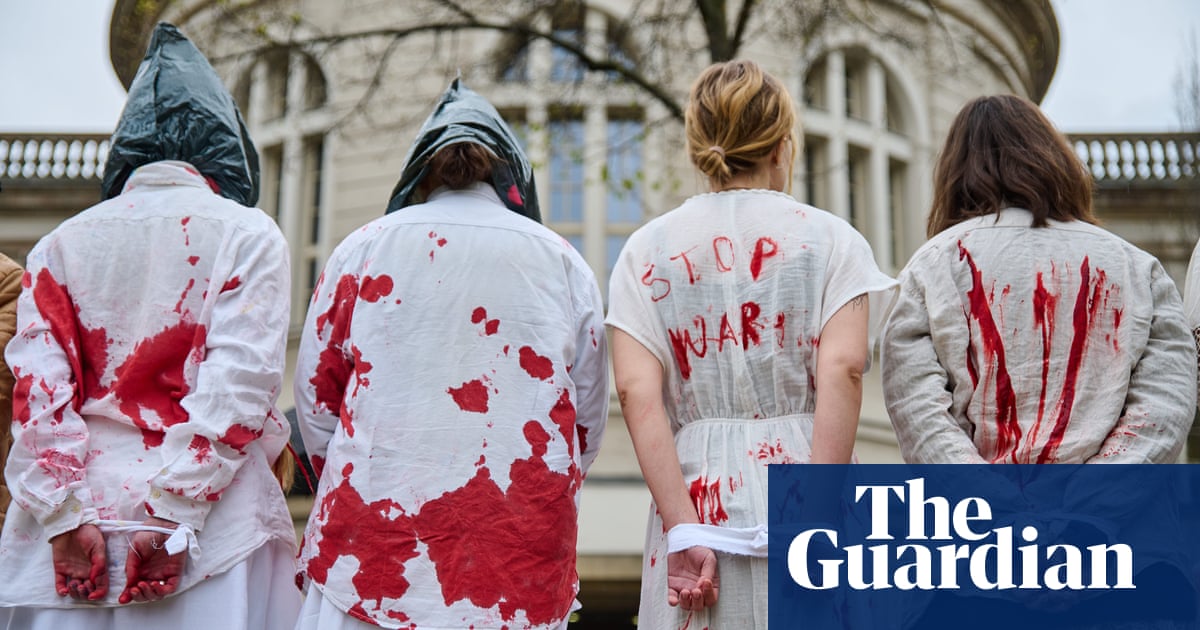
Angelina Jolie has decried the lack of action by governments to support survivors of wartime rape as “deeply painful and frustrating”.
The actor and UN special envoy for refugees, who launched the Preventing Sexual Violence in Conflict Initiative (PSVI) with the then foreign secretary William Hague in 2012, said there had not been “nearly enough” progress on bringing perpetrators to justice, prioritising survivors’ needs or ending impunity.
Writing in the Guardian today, she said: “There has been some progress … but it has not been nearly enough to meet the needs of survivors, or to deter perpetrators from using rape as a weapon of war in almost every new conflict in the past decade.
“Despite the commitments governments made, we have not seen significant, lasting action at the global level. This is deeply painful and frustrating.”
As the British government marks the 10th anniversary of PSVI with a conference in London, Jolie said: “We meet and discuss these horrors and agree that they should never be allowed to happen again. We promise to draw – and to hold – that line.
“But when it comes to hard choices about how to implement these promises, we run into the same problems time and again. We run into some security council members abusing their veto power, such as in the case of Syria. We run into economic and political interests being put first, treating some conflicts as more important than others. And we run into a lack of political will, meaning that governments in recent years have downgraded the importance of efforts to combat war-zone sexual violence, despite the direct link to international peace and security.”
Ministers and representatives from 70 countries are expected to attend the two-day PSVI summit, which begins on Monday. They will be joined by survivors of violence and Nobel laureates Nadia Murad and Denis Mukwege.
Tariq Ahmad, the UK prime minister’s special representative for PSVI, said the conference will “drive new action”, secure new commitments (including funding) and “discuss how to strengthen the global response to these crimes and how to address some of the real root causes, including gender discrimination”.
The UK government announced on Monday £12.5m of new funding over three years to tackle violence. Most of the money will be used to support survivors.
The foreign secretary, James Cleverly, said: “The very threat of rape and sexual violence as a weapon of war should bring immediate international condemnation and swift action to stop those attacks before they start.
“So today, we stand in solidarity to support survivors and to bring justice. But also to send an unequivocal message to those who order, allow or perpetrate sexual violence: we will not tolerate it and we will push for perpetrators to be prosecuted.”
But Nimco Ali, the chief executive of the Five Foundation, an organisation working for women and girls around the world, said pledging money was not enough.
“It is not enough that we see renewed commitments,” she said. “It has been proven they are not sufficient or reliable. The Foreign, Commonwealth and Development Office needs to embed change at its core and update its own systemic priorities by putting the principles of gender equality at the heart of its aid and diplomacy policies.”
Ali added that money must be given to local women’s organisations. “Unless international aid and foreign diplomacy strategies include unshakeable and specific financial commitments for women and girls at grassroots level – in countries where the specific instances of violence are happening – we will be back here again in 10 years’ time,” she said.
Eva Tabbasam, the director of Gender Action for Peace and Security, said £12.5m was “a drop in the ocean compared to the amount of money that has been cut from gender equality programming”.
Last year saw a £3bn reduction in the overseas aid budget, with further cuts estimated in the next few years. An analysis of UK aid between 2019 and 2022 showed the cuts had a significant detrimental impact on women and girls’ lives.
Yasmin Sooka, the chair of the UN commission on human rights in South Sudan, said the war in Ukraine meant that the organisations that survivors of sexual violence depend on in South Sudan and other countries had seen their funds cut in recent years.
“The international community needs to stop these violations in South Sudan, but in the absence of peace at least we should be able to patch up the victims,” she said.
A PSVI summit held in London in 2014 – attended by 1,700 politicians, celebrities, and survivors – was criticised for costing more than five times the 2015 UK budget for tackling rape in war zones.
In 2020, a damning report by the aid watchdog said PSVI had “not fully delivered on its ambitions and is at risk of letting survivors down”.











